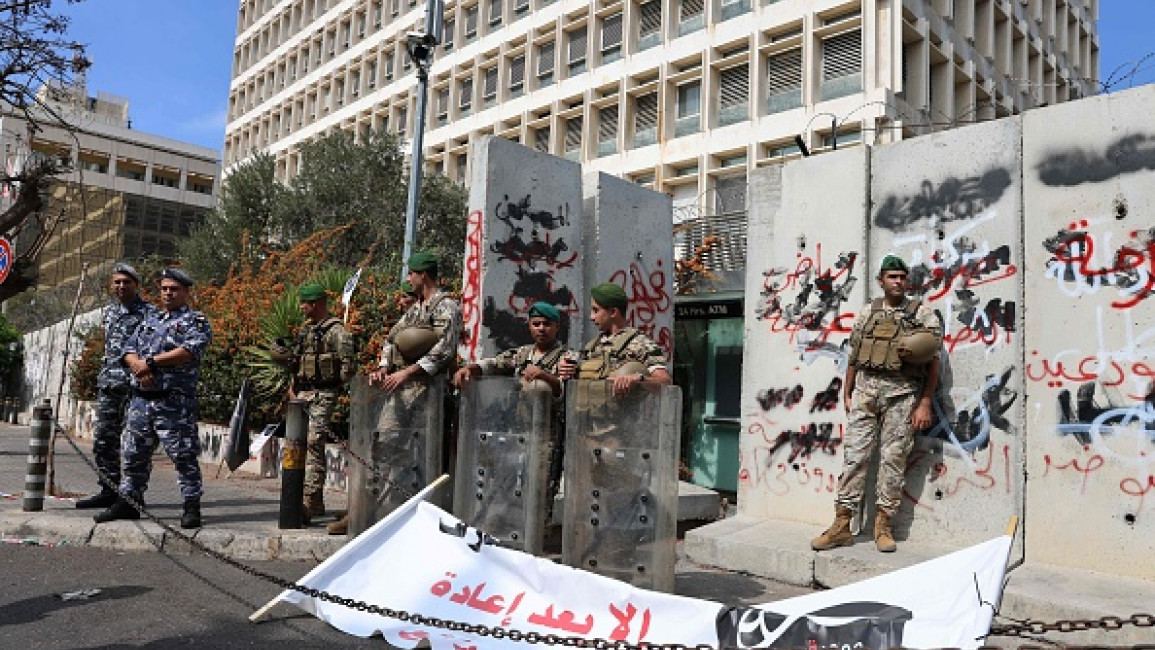Lebanon's proposed banking reforms protect elites, experts say
Proposed reforms to Lebanon's banking sector have been met with criticism by experts and activists, who warn that the direction of its reforms does not promote accountability or protect depositors.
On Wednesday, parliament made steps towards changing the country's banking secrecy laws, a step long demanded by the International Monetary Fund (IMF).
Previously, the secrecy law made it near impossible to reveal the owners and contents of bank accounts in the country – which facilitated money laundering and smuggling of funds out of the country.
The new amendment allows judicial authorities to request the lifting of secrecy on certain accounts. Though this provides further transparency into Lebanon's otherwise opaque banking sector, critics have said the new law falls short of real reform.
Further, a number of MPs indicated that they would ask that the government be able to veto requests from the judiciary to lift banking secrecy.
According to the Lebanese legal monitor Legal Agenda, there was a "major modification" of the draft law, but it is too early to evaluate the effectiveness of the law until a final version is agreed upon.
The IMF has requested a package of reforms from the country before it unlocks about US$ 3 billion of international aid to the country. Lebanon sought the IMF's assistance after the beginning of it financial crisis in 2019, where banks indefinitely froze accounts after a run on the banks.
The potential IMF aid package, in addition to stabilizing the finances of the beleaguered economy, could catalyse further bailouts from the international community.
Thus far, however, the details of the government's proposed financial reform plan have sparked intense criticism from civil society.
The government has proposed differentiating the amount of money it guarantees for depositors depending on the date that they made their account.
Depositors who created so-called "fresh dollar accounts" after the fall of 2019, would have up to US$ 50,000 of their deposits insured by the government. Those who had accounts before would be paid their accounts at an exchange rate lower than the actual one, in effect creating a huge haircut on their deposits.
"This differentiation of fresh and non-fresh [accounts] and classification of accounts is an absolute fraud. One of the minimal conditions of securing a collapsing economy is to diminish this phenomena of differing rates," Rafik Oreh Ghraizi, a spokesperson for the Depositor's Union, told The New Arab.
The government has lowered the amount of money it said it will guarantee for depositors as it has gone through subsequent drafts of the financial reform plan.
The Association for Banks in Lebanon (ABL) has said that responsibility for the financial crisis does not lie with it, but instead with the Lebanese state.
On 4 October, the ABL said that the financial crisis has been prolonged because the parliament has not passed reforms, despite its urging, and thus the responsibility for the crisis is out of its hands. The ABL further suggested that "the public sector return deposits what is required to depositors."
Contrary to the insistence of the ABL that it is not responsible for the financial crisis, Ghraizi said that they are "partners in crime" with the political class.
Previous leaked drafts of financial reform plans proposed by the ABL saw the association suggest that public sector assets, such as assets and otherwise, be leveraged to balance Lebanon's balance sheet.
Some members of civil society are not against the idea of a sovereign wealth fund, but only if depositors are the first ones to benefit from this plan rather than public assets being used to pay off debts or financial losses.
"We have proposed the idea of a fiduciary fund, but depositors must be the first beneficiaries of the public fund. The difference between what we and the government want is timing. We also want to distinguish between legitimate and illegitimate sources," Karim Daher, a lawyer and lecturer at Saint Joseph University, told TNA.
"We have to promote accountability first. This is the same authority which brought us to this disaster," Daher added



